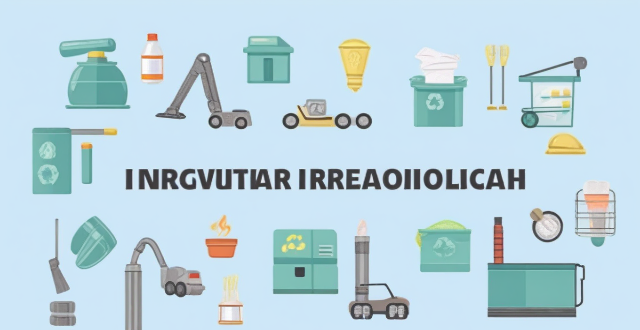The text discusses innovative solutions for controlling plastic pollution in developing countries, including promoting recycling and waste management, encouraging alternative packaging materials, educating the public on plastic pollution, implementing bans on single-use plastics, and investing in research and development.

Innovative Solutions for Controlling Plastic Pollution in Developing Countries
Introduction
Plastic pollution is a global problem that affects both developed and developing countries. However, developing countries often face unique challenges in addressing this issue due to limited resources, infrastructure, and awareness. Innovative solutions are needed to control plastic pollution in these regions. Here are some potential solutions:
1. Promote Recycling and Waste Management
Recycling and waste management are crucial components of controlling plastic pollution. In developing countries, recycling facilities may be limited or non-existent, making it difficult to manage plastic waste effectively. To address this issue, governments and organizations can invest in building recycling plants and waste management systems. They can also encourage the use of recycled materials by offering incentives to businesses that use them.
2. Encourage Alternative Packaging Materials
Another solution is to promote the use of alternative packaging materials such as paper, glass, or biodegradable plastics. This can reduce the amount of single-use plastics that end up in landfills or oceans. Governments can offer tax incentives or grants to companies that switch to eco-friendly packaging materials.
3. Educate the Public on Plastic Pollution
Educating the public on the dangers of plastic pollution is essential for creating long-term change. Governments and organizations can launch public awareness campaigns to educate people about the harmful effects of plastic pollution on the environment and human health. They can also provide training programs on proper waste disposal techniques.
4. Implement Bans on Single-Use Plastics
Banning single-use plastics such as straws, bags, and cutlery can significantly reduce plastic pollution. Many developing countries have already implemented such bans, but more needs to be done. Governments can work with businesses and communities to find alternatives to single-use plastics and ensure compliance with the bans.
5. Invest in Research and Development
Investing in research and development of new technologies and products can help reduce plastic pollution. For example, researchers are working on developing biodegradable plastics that break down naturally without harming the environment. Governments can support these efforts by funding research projects and encouraging collaboration between scientists and industry leaders.
Conclusion
Controlling plastic pollution in developing countries requires innovative solutions that address the unique challenges faced by these regions. By promoting recycling and waste management, encouraging alternative packaging materials, educating the public, implementing bans on single-use plastics, and investing in research and development, we can work towards a cleaner and healthier planet for all.